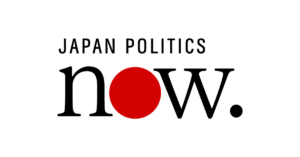
May 2021
Japan entered its third state of emergency declaration before the Golden Week holidays as authorities continue to try to contain the virus. After receiving input from experts, the government decided to extend the state of emergency beyond May 11 as the affected prefectures did not improve over the holiday period. Managing the pandemic and preparing for the upcoming summer Olympics overshadow any possibility of the government showcasing its other policy proposals. With attention focused on the pandemic and no flagship policies (Digital Agency or Child Agency) on the immediate agenda, the government is unlikely to call a snap election before the lower-house term expires in October.
Just last month, the government suffered a crushing defeat when it failed to secure any of the three parliamentary seats open in by-elections in Hiroshima, Nagano and Hokkaido. Opposition candidates backed by the CDPJ won all three seats, even in traditionally conservative areas. These were the first national elections since Prime Minister Suga Yoshihide took office in September last year, and the first chance for voters to offer their judgment of the administration. They sent a strong signal to the ruling LDP and, most importantly, to its lawmakers.
Want to Stay Informed?
Sign up for monthly updates on the latest political developments impacting your industry in Japan:
The U.S.-Japan bilateral summit in Washington on April 16, the forthcoming Digital Agency and the promised alleviation of childhood poverty through a children’s agency were not enough to sway voters turned off by scandals (vote buying by Kawaii Anri and Katsuyuki in Hiroshima), cronyism (Science Council scandal), corruption (bribes from farming industry) and a pandemic response that is perceived to be laggardly and inefficient. Suga’s term as LDP party president ends on September 30, and with a general election on the horizon it will be difficult for him to convince his peers that they will keep their seats under his renewed leadership. Lawmakers care most about reelection, and they will look for a more popular leader if they see that their seats are in danger. Will the increased efforts by the administration to accelerate the vaccination rollout across the country be the miracle it needs?
This month’s edition of Policy Radar covers developments in Energy, Healthcare, Social and Integrated Resorts.
Healthcare:
Government to Consider Allowing Vaccine Rollout without Domestic Clinical Trials
The Japanese government will consider removing regulatory hurdles to produce medical treatments and vaccines during emergency situations that have not yet gone through medical trials. The current process whereby treatments must go through domestic clinical trials takes about a year. The government will revise legislation to allow new vaccines and medical treatments approved overseas for a temporary time before any clinical trial is undertaken in Japan. However, revisions to legislation will not come until at least early next year, meaning they will not impact the current vaccine rollout. The new approval scheme is likely to reflect the approval program used in the U.S., which can approve medical treatments in less than a month. However, the government will also study the possibility of adding compensation for side effects for the temporary use of drugs.
Additionally, the Pharmaceuticals and Medical Devices Agency (PMDA) revealed that vaccines modified for new variants will not require clinical trials if the production process and the handling method is similar to that of the already authorized vaccine. The national pharmaceutical regulatory body has indicated that data from clinical trials carried out overseas will still be necessary when applying for approval.
Langley Insight: Japan is well known for its rigid and conservative medical practices (e.g., its resistance to telemedicine). It is particularly noteworthy that drugs and vaccines must undergo clinical trials in Japan, a fact that has impeded the fast approval of several vaccines despite their availability. However, with a growing number of coronavirus variants (about 70% of new infections in Osaka and Hyogo) resistant to the existing vaccines, the medical community has lifted the requirement to allow for a faster vaccination rollout. The government has also realized that the required domestic clinical trials have impeded its vaccination efforts, even with faster approval procedures.
Energy:
METI & MOF to Boost Public Funding for Exploration of Rare Earth Metals
The Ministry of Economy, Trade, and Industry (METI) and the Ministry of Finance are looking to change the rules for Japan Oil, Gas and Metals National Corporation (Jogmec), a state-backed company governed by METI, to secure a steady supply of rare-earth metals needed to promote electric vehicles and shift to cleaner energies. Jogmec has been central in Japan’s strategy to diversify its rare earth supplies since China’s embargo in 2010. Over the past decade, it has reduced rare earth dependency on China from 90% of imports to 58% through investments and partnerships with rare earth companies worldwide. With a goal of reducing Chinese imports below 50% by 2025, the government is considering lifting the 50% cap on government funding for resource exploration projects by the end of this year. This would allow Jogmec to cover more than half of the costs of exploring and developing natural resource mines, reducing the burden for the private sector in undertaking such projects. Joint projects with Quad alliance members, including Australia and the U.S., are further expected to support Japan’s efforts to secure rare earth supplies.
METI Signs MOU with UAE to Secure Hydrogen Resources
Hydrogen is one of the key sectors outlined in the Japanese government’s Green Growth Strategy, which aims to promote economic growth and protect the environment by achieving carbon neutrality by 2050. As a first step toward its plan to expand cooperation with countries with hydrogen supplies, METI signed a Memorandum of Cooperation on hydrogen with the Ministry of Energy and Infrastructure of the United Arab Emirates (UAE), one of the world’s leading producers of fossil-sourced “blue” hydrogen and non-fossil sourced “green” hydrogen. The collaboration will see the construction of new supply chains, including hydrogen production and transportation to Japan, the exchange of information on developing standards and regulations on hydrogen and an increased cooperation and use among the private sectors.
Langley Insight: While the shift toward hydrogen and renewable energy sources will be important in achieving the government’s carbon neutrality target, the initiative is costly and hydrogen projects are fragmented. The Tokyo Metropolitan Government is taking the lead in developing a hydrogen powered town in Harumi with Panasonic. At the national level, budget allocations for hydrogen projects are dispersed among the Ministry of Industry, the Ministry of Environment, and the Ministry of Land, Infrastructure, Transport and Tourism. This leads to a constant tug of war over leadership, particularly between the Environment Ministry and METI. Even within METI, different departments are in charge of hydrogen and ammonia, a carrier of hydrogen. Centralizing efforts, as seen in how energy and environment policies are conducted in the U.S. and Europe, will be critical to achieving Japan’s carbon neutrality goals.
METI to Meet 46% Greenhouse Gas Reduction Target by Expanding Solar Power Generation
Prime Minister Suga announced during the Global Warming Prevention Headquarters Meeting that Japan will target a 46% cut in greenhouse gas emissions in 2030 from fiscal 2013 levels to achieve net zero emissions by 2050. The initial reduction goal of 26% was revised to demonstrate Japan’s commitment to be in line with the new targets put forward by European nations and China. This new target is also a sharp increase from the 39% threshold METI initially put forward. METI intends to boost renewable energy, with a focus on the introduction of more solar power, along with further energy conservation efforts and revision of crude steel production to meet the higher target. While the government has plans for offshore wind farms capable of generating 45 gigawatts by 2040, their full-scale operation will only begin from 2030. Environment Minister Koizumi Shinjiro has promoted solar power as the only realistic option to meet the 2030 target. The revision of the Global Warming Countermeasures Promotion Act currently under deliberation in the Diet will see accelerated introduction of solar power through streamlined and centralized implementation processes.
Langley Insight: The government has announced an ambitious goal, yet how the 46% reduction target will be achieved remains unclear. Solar penetration is already high in Japan as the country is densely populated and with little land available for the installation of additional solar plants. Moreover, the conversion of agricultural land is bound to be met with opposition from lawmakers affiliated with farm organizations and lobbies — Japan’s agricultural lobby, Nokkyo, is very influential with the LDP and is one of strongest lobbies in Japan. Environment Minister Koizumi’s proposal for a solar power mandate is already facing resistance from the public and housing-related organizations, meaning that meeting carbon neutrality targets will not be simple.
Technology:
Japan and the U.S. to Invest $4.5 Billion in 6G Development
Both U.S. President Joe Biden and Prime Minister Suga have agreed to invest around $4.5 billion for the development of 6G communications. Both Japan and the U.S. will invest in the research, development, testing and installation of secure communication networks and advanced information technology, with the former committing to $2 billion and the latter $2.5 billion. Both have also called for the advancement of “secure and open” 5G systems, including the use of Open-RAN standards technology. Japanese officials believe that setting global standards will be crucial for the development of next-generation communications (6G). Japan and the U.S. will cooperate to promote secure connectivity to advanced communications for less-developed nations.
These investments add to the ¥50 billion included in Japan’s third supplementary budget for fiscal 2020 for the research and development of 6G services through public and private sector collaboration. ¥30 billion will be used for supporting research and development through the Ministry of Internal Communications, while the rest (¥20 billion) will be used to build a facility for the testing of 6G-related products. The ministry is also mulling adding more capital to the ¥30 billion fund by collecting more money from fees paid by telecommunications operators. The government hopes to see the basics of a 6G infrastructure laid out by 2025 and put into use by around 2030.
Langley Insight: Japanese officials have been worried about the country’s slow deployment of 5G, as well as the inability of Japan to secure market share, which Chinese, Korean and European companies have been able to do. Chinese companies have around 40% of 5G market share, with European and Korean companies accounting for 50% of the market. That leaves little for American and Japanese players. The Chinese government is also advancing subsidies for the conceptualization and development of 6G under the newly adopted five year plan, placing it in competition with Japan and the U.S. The Japanese government aims to raise Japan’s share of patents to about 10%.
Social:
New Agency to Put Japan’s Child Policies Under One Roof
The ruling LDP is considering legislative proposals to create a new agency that would centralize bureaucratic control over education and welfare policies. Lawmakers started discussing the details and a roadmap for implementation on April 13 under the guidance of the LDP Secretary-General Nikai Toshihiro. In an upper-house hearing, Prime Minister Suga explained how certain issues have to go through different ministries and agencies in order to prevent child abuse, for example. Currently, at least five government bodies legislate policies related to children, notably the education, health, and justice ministries, along with the police and the Cabinet Office. Suga wants to streamline the bureaucratic process, but he is likely to face resistance from ministries as there is a vast number of policy areas that affect children, and it would be unclear to what extent ministries would lose their prerogatives to the proposed agency. The LDP hopes to set up the Children Agency by fiscal 2022, with legislative packages presented in the Diet at the beginning of 2022.
Tourism:
Government Begins Discussions Legalization of Sports Gambling
The government has begun studying measures to legalize betting on two of the country’s most popular sports, soccer and baseball. Lawmakers are considering permitting gambling on both sports from 2024. Soccer betting is actually already legal in the form of parimutuel betting, but other forms of betting are currently legal for only four sports (horse racing, bicycle racing, motorboat and motorcycle racing), and it is heavily regulated and controlled by ministries. While there is some resistance to the liberalization of the gambling sector, new online trends marked by the pandemic and the economic damage caused to the sports industry have caused the government to rethink. The current discussions follow an internal study which argued that liberalizing the sector could create a market of around $65 billion each year. However, any move toward deregulation is likely to face a similar backlash as the future establishment of integrated resorts in three locations (not yet selected by the central government), which is a hot-button issue in local politics.
Langley Esquire provides a full range of government & public affairs consulting services, including policy & media monitoring, stakeholder mapping, strategic communications, procurement and government relations. We craft unique solutions tailored to meet our clients’ needs across industry sectors including technology, energy, healthcare, finance, transportation & infrastructure, defense, and beyond.
As the outbreak of the COVID-19 pandemic continues to bring unprecedented impact around the world, public and private sectors rush to adapt to a rapidly-changing global environment. While there is uncertainty for what lies ahead, new opportunities emerge for public-private partnerships. Every day brings new insights, opportunities, and technology that affect Japanese politics, business, and society.
If you are struggling to make sense of policymaking and engage your key stakeholders across government, media, and academia, contact us to learn more about what we can accomplish for you.
Be the First to Receive Future Updates!
See Related Content:

Japan Politics Now – April 2021
In Japan Politics Now, we aim to bring you Japan’s latest political developments, both foreign and domestic, and explain in brief why they matter.

Public Policy Updates – April 2021
This month’s edition of Policy Radar focuses on policy and government developments in Healthcare, Data, Defense and Technology.

Japan’s Smart Cities Promise New Tie-Ups with High-Tech Firms
In June the Japanese Diet passed legislation governing the creation and management of smart cities — urban centers that use cutting-edge technology to improve livability and convenience.
